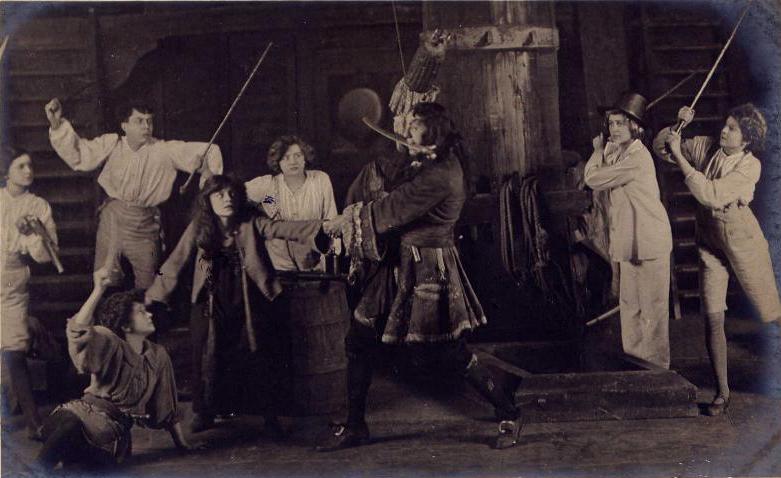More Than Peter
Some authors are remembered for their body of work, some for their one masterpiece. J.M. Barrie is the latter. While tremendously successful in his day, almost all his work is forgotten, except for the creation known as Peter Pan. Lisa Chaney's fine biography of Barrie, Hide-and-Seek with Angels, helps restore some of the balance. Yes, she spends more time on Peter Pan than anything else, but it's only one part of Barrie's life and work.
Barrie's was a rags to riches tale. Born in 1860 to a poor Scottish family, his hard work and talent led to an improbable rise. He started in journalism, churning out countless stories and rising through the ranks. But he had other aspirations, and eventually became a popular novelists and playwright. He started with tales of old Scotland, but broadened his style and subject matter as he went along. Yes, he's today remembered as the creator of Peter Pan, but Chaney claims he was the most successful writer of his day.
By the time the play Peter Pan was produced in 1904, he was already widely read through books such as The Little Minister (1891) (later a successful play) and Sentimental Tommy (1896), and had become a top name in British theatre with hits such as Quality Street (1901) and The Admirable Crichton (1902). But even though he had written about fantasy and childhood before, no one was prepared for the 1904 stage production of Peter Pan.
For one thing, is it play for children or adults? And what sort of plot it is that features lost boys having exciting adventures? And it was expensive, with fancy sets and costumes, and state-of-the-art effects (including flying, of course). But from the start, audiences were enchanted. Peter Pan hasn't left us since. Partly because Barrie kept redoing the play, as well as his novel version, throughout the rest of his life.
Barrie always flirted with his leading ladies, and even married one, Mary Ansell, in 1896. But it was a childless and, apparently, sexless marriage. Barrie did, however, have lengthy sessions of play with the boys of the prominent Davies family who lived nearby. Barrie, as was his way, burrowed into the family, becoming a sort of uncle to both the pleasure and consternation of the Davies. And it was out of this playtime that Peter Pan was born.
After Peter Pan, Barrie was far from written out, creating plays such as Dear Brutus (1917) and Mary Rose (1920). But life was getting harder. Not only was it more difficult to find inspiration, but the two parents of the Davies family died young, leaving Barrie to help support the boys. And then two of the five died, one in WWI, the other of drowning (though it might have been suicide).
In his last years Barrie was rich and honored, but he never fully grew up (he was short, barely 5' 4", by the way), and always longed for the days when imagination could take over. Not that that was his message--his work is more subtle than that. Peter Pan never grows up, but it's both a blessing and curse.


0 Comments:
Post a Comment
<< Home